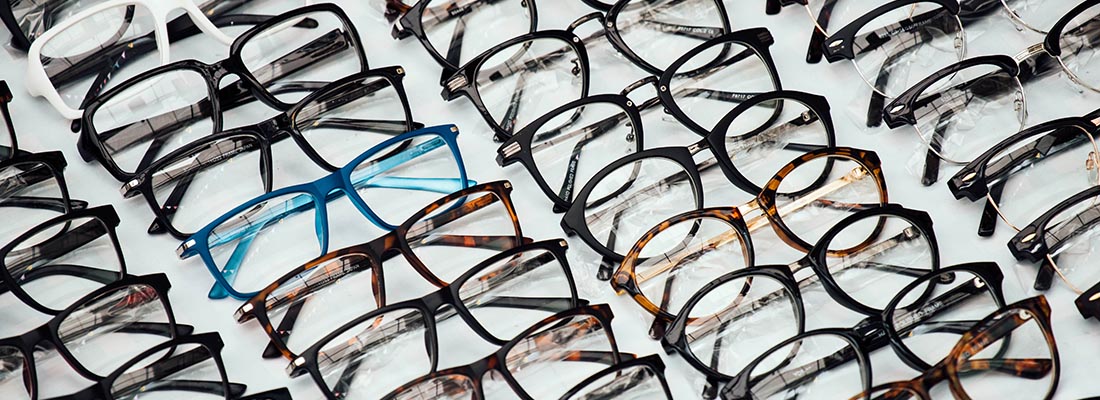
02:53 -
© Photo par Richard Biros
Whether you’re looking to save money, reduce your carbon footprint or you simply love old-school design and vintage retro classics, then secondhand glasses may be for you. With no additional difficulty or inconvenience, it is possible to bring vintage frames into your optician, who will fit them with your new prescription lenses as well as repair any damage and give them a cleanup, swiftly making them seem as good as (and perhaps even better than) new.

© Photo par Chuttersnap
La Lunetterie du Coin which has stores in Strasbourg and Metz
Dingue de Lunettes which is located in Paris and Bordeaux.

© Photo par Whereslugo
Based on your prescription, it is important to note that there are sometimes restrictions on what lenses you can put into what frames, as depending on how thick they are, they may or may not fit into the second-hand frames you’ve chosen. Generally though, an optician should always be able to make lenses work for any style of frame, although they might not necessarily be the most aesthetically-pleasing. Normally, if your prescription is weak, then there shouldn’t be any problem with fitting the lens. However, the more drastic the alteration to be made to the lens, the more your choice of glasses could potentially be restricted, especially if you want them to still look chic. For example, if you are very short-sighted, you should choose a secondhand model with a smaller frame, as a larger frame, combined with thick lenses, will make your eyes appear really small and distort the proportions of your face.
It is also important to remember that old glasses – particularly when plastic and acetate – get weaker over time and the material becomes brittle. This means that they might break when the new lenses are being fitted.
Unless you’ve bought them from an optician, your secondhand glasses, whether bought at a flea market or online, which you put your new lenses into, will not be covered by any aftersale care service. Furthermore, if they need it, your optician will not necessarily be able to order the right parts, depending on if they are still being manufactured. Indeed, you run a few risks when buying second hand glasses, particularly if the frame splits when you put the new lenses in. If this happens, it is likely you will be able to save the lenses and reuse them, but then again your new frames will have to be suitable to the size of the lenses you’ve already had specifically made, and so your choices will be hugely limited.
When you have a medical prescription and you buy second-hand glasses from a registered optician, who can draw up treatment forms that enable you to be reimbursed, secondhand glasses can be covered under the same terms as brand new glasses, meaning you should be able to get the new frames under your existing healthcare policy. It is also worth noting that various online resale sites who similarly offer to provide insurance forms for customers. However, if you buy second-hand glasses from anywhere other than an authorized optician, only the new lenses will be eligible for coverage under any public or private health insurance.